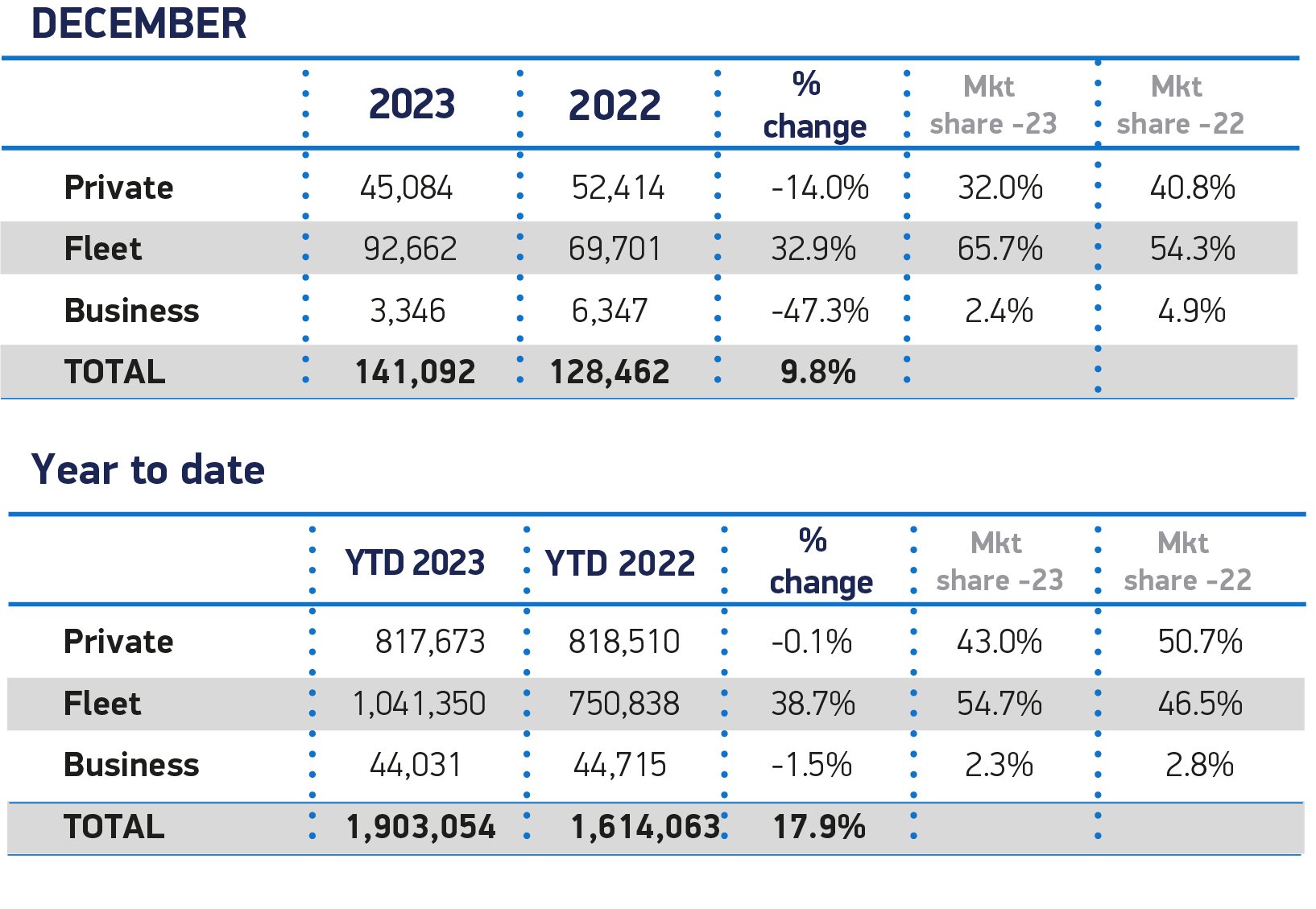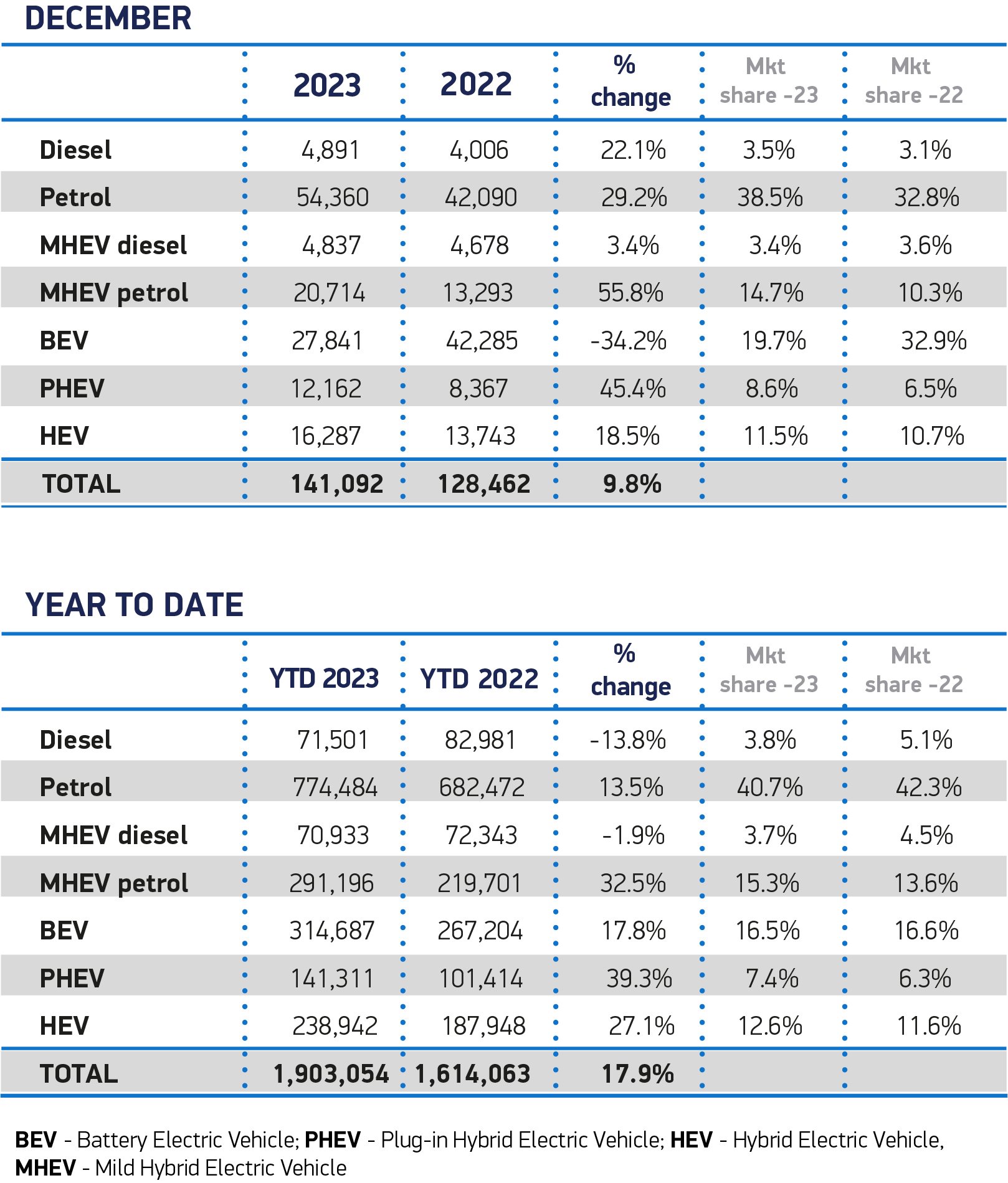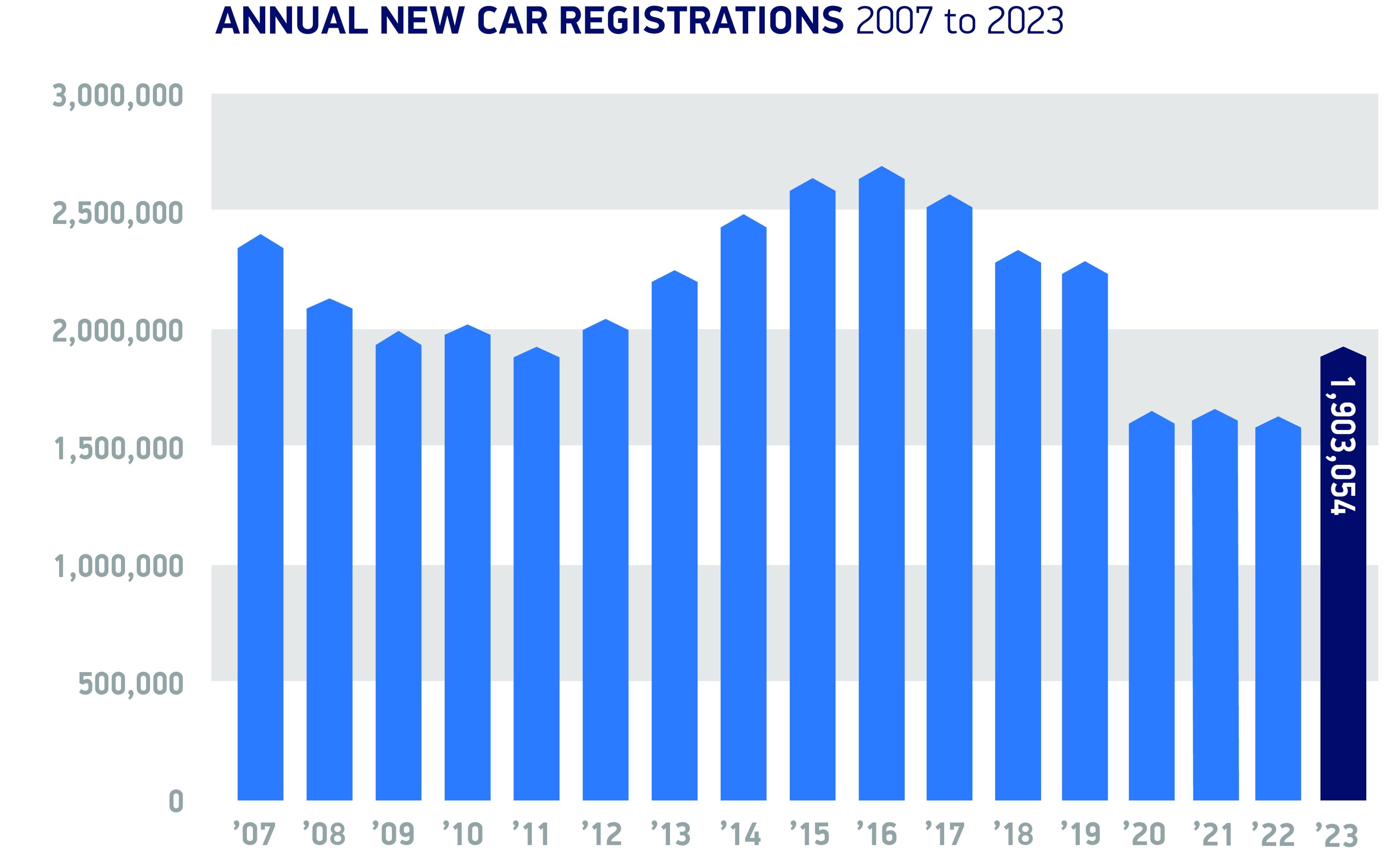The sales
New car registrations continue to recover from the pandemic but struggle with costs
New car sales finally seem to be rallying after the pandemic effect.
Hitting their highest level since the pandemic, some 1.9million models hit the road in 2023, according to official registration figures .
Britain grew its new car market by almost 18% against a difficult economic backdrop.
Powering up
The data shows that the number of electric vehicle registrations in 2023 exceeded the previous two years combined. However, the numbers mask the fact sales dipped below forecasts and appetite for battery cars appears to have dwindled.
The statistics show only one in 11 private buyers in Britain purchasing new cars last year chose an EV. At this level it could spell trouble for manufacturers as they face binding legal targets to increase battery model sales. If they fail, they face hefty fines under new laws introduced this week.
Pundits say that while the cost of living crisis has a big effect on sales, especially with EVs being more expensive, it is government policy that is also to blame.
Charging infrastructures are still below demand and requirements, increasing fears of range anxiety. Furthermore, the government also removed subsidies on new EVs (2022), while more recently Prime Minister Rishi Sunak moved the 2030 ban on new petrol and diesel cars and vans, back to 2035. Private investment into new EVs is low, and the figures are only lifted by fleet sales.
Good company
Fleet and business new car registrations surpassed one million units last year, a third more than the it achieved in 2022.
It equates to 57% of the overall market and a 33% uplift on 2022.

December sales, up 9.8%, wrapped up the 17th month of consecutive growth.
Private consumer demand remained stable at 817,673 units after a strong recovery in 2022.
But the overall new car market remains 17.7% below pre-pandemic levels. However, compared with the previous year, the value of new car sales jump more than £10 billion to around £70 billion (nearly 300,000 new registrations).
Mike Hawes, SMMT chief executive, said: “With vehicle supply challenges fading, the new car market is building back with the best year since the pandemic.
“Energised by fleet investment, particularly in the latest EVs, the challenge for 2024 is to deliver a green recovery.”
Model populism
When it comes to vehicle type, buyers showed a continued preference for superminis, dual purpose and lower medium cars, accounting for 29.8%, 28.6% and 28.2% of the market respectively.
These three segments have been the most popular since 2013.
Battery electric vehicle (BEV) volumes fell by more than a third (34.2%) in December. This means 27,841 pure electric cars registered in the month, compared to 42,285 registered in December 2022.
Some explanation for this may be manufacturers holding back on some deliveries until the zero-emission vehicle (ZEV) mandate came into force this week. This new law requires 22% of all new car sales to be zero emission.
However, looking at the year as a whole, BEV uptake reached a record volume. It was up by almost 50,000 units with 314,687 new registrations.
Hybrid electric vehicles (HEVs) also recorded robust growth, up 27.1%, while plug-in hybrids (PHEVs) also enjoyed a strong year, with a 39.3% increase in registrations .
Overall, BEVs accounted for one in six new cars registered in 2023, with the majority taken by business and fleet buyers who benefit from compelling tax incentives. In contrast, one in 11 private buyers chose a BEV. As a result, market share slipped to 16.5%.

Plugging the gap
The SMMT is calling on Government to support private buyers by halving VAT on new EVs for three years.
This temporary cut would give private consumers access to fiscal support at a level similar to that enjoyed by business buyers. With cost being commonly cited as a reason not to go electric, the VAT move is likely to deliver a step increase in EV sales.
Over the past five years, BEV uptake has risen almost 20-fold. The Treasury has in turn reaped a VAT windfall due to these vehicles typically having higher purchase costs than their ICE counterparts.
Halving VAT would give consumers an estimated additional £7.7bn in BEV buying power to the end of 2026.
This is estimated by the SMMT to encourage an extra 270,000 new car buyers in Britain to go electric. It could put 1.9 million new EVs on the road by the end of 2026.
“Government has challenged the UK automotive sector with the world’s boldest transition timeline,” said Hawes.
“It must now help all drivers buy into this future, with consumer incentives that will make the UK the leading European market for ZEVs.”







